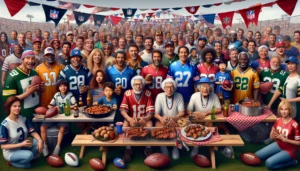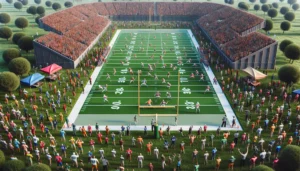Key Takeaways
- The debate about the NFL being scripted often stems from dramatic game moments, controversial calls, and social media speculations.
- Theories surrounding scripting include claims by former players, media influence, and suspicious officiating or outcomes in high-stakes games.
- The NFL firmly denies scripting allegations, citing strict protocols and the unpredictability of gameplay as evidence of its authenticity.
- Statistical analysis of game outcomes, such as underdog wins or unexpected playoff runs, debunks the idea of pre-written narratives.
- The “scripted NFL” narrative has become a pop-culture trend, sparking humor, curiosity, and fan engagement while occasionally challenging the league’s credibility.
- Despite the rumors, the league thrives on unpredictable sports drama, emphasizing skill, strategy, and randomness as core elements of its competition.
I’ve always been fascinated by the drama and unpredictability of the NFL. Every game feels like a rollercoaster, with jaw-dropping plays, last-minute comebacks, and storylines that seem almost too perfect to be true. But every now and then, I hear people ask, “Is the NFL scripted?” It’s a question that sparks heated debates among fans and skeptics alike.
I get it—some moments feel straight out of a Hollywood movie, and it’s hard not to wonder if there’s more to it than just raw talent and strategy. Whether it’s a miraculous play or a controversial call, the idea of the NFL being scripted has captured the imagination of many. Let’s dive into this intriguing topic and see if there’s any truth to the conspiracy or if it’s just part of what makes the game so thrilling.
The Origin Of The “Is The NFL Scripted” Debate
Claims of the NFL being scripted emerged from fan speculation about specific game outcomes that seemed too perfect or dramatic to be coincidental. Iconic games featuring unexpected comebacks, controversial referee decisions, or unusually high-stakes drama have fueled this debate. For example, the New England Patriots’ comeback victory in Super Bowl LI sparked conversations about whether moments like these could be manufactured for entertainment.
Social media amplified these discussions, with meme culture and viral posts joking about teams receiving “scripts” before the season. Players like Arian Foster have teased the idea publicly, further feeding speculation, even if done in jest. These jokes often blur the line between humor and genuine skepticism, deepening fan curiosity.
High revenue stakes in professional sports also contribute to this narrative. The NFL, generating $18 billion in annual revenue as of 2023, operates in an entertainment-driven economy. This financial success leads some to question if certain storylines or outcomes are orchestrated to maximize viewership and profitability.
Popular Theories Behind The NFL Being Scripted
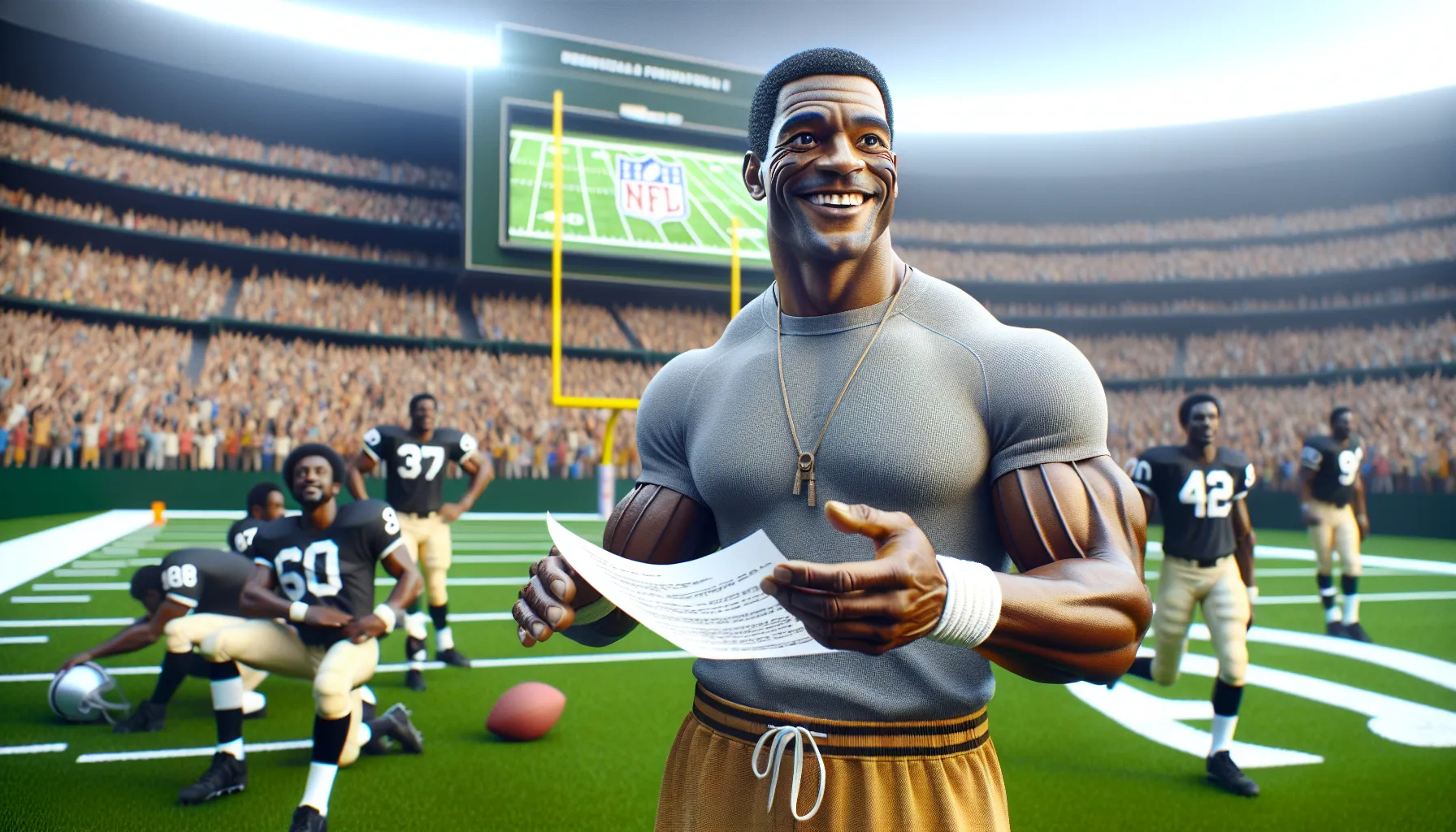
The idea of the NFL being scripted has intrigued fans for years, fueled by stories from insiders, media portrayals, and puzzling game moments. Some theories stand out as recurring topics in these discussions.
Claims By Former Players And Coaches
Former players occasionally make comments that spark speculation. Arian Foster once joked about receiving seasonal “scripts,” which spread widely online and added credibility to the debate. While many dismiss such remarks as humor, the NFL’s high-stakes environment makes any insider comment resonate. Some retired coaches have also subtly questioned officiating consistency, suggesting possible external influences rather than acknowledging mere human error.
Influence Of Media And Entertainment
The NFL’s strong ties to media make some fans believe in scripted narratives. With $10 billion-plus TV contracts securing massive coverage, there’s an incentive to craft compelling storylines that boost viewership. Shows like “Hard Knocks” and dramatized commercials often depict larger-than-life characters, reinforcing the perception that entertainment could outweigh sports authenticity. Media-driven narratives, such as “Cinderella teams” or heated rivalries, add to the belief that storylines might be pre-planned.
Suspicious Game Outcomes And Officiating
Unusual calls by referees frequently spark controversy. For example, subjective decisions on pass interference or roughing the passer penalties have altered critical moments in playoff games. Fans often recall instances like the 2019 NFC Championship Game, where a missed penalty left many questioning officiating motives. Unexpected comebacks, improbable plays, and repeated last-second wins by high-profile teams contribute to the idea of outcomes feeling more like scripted drama than genuine competition.
Debunking The Scripted NFL Myth
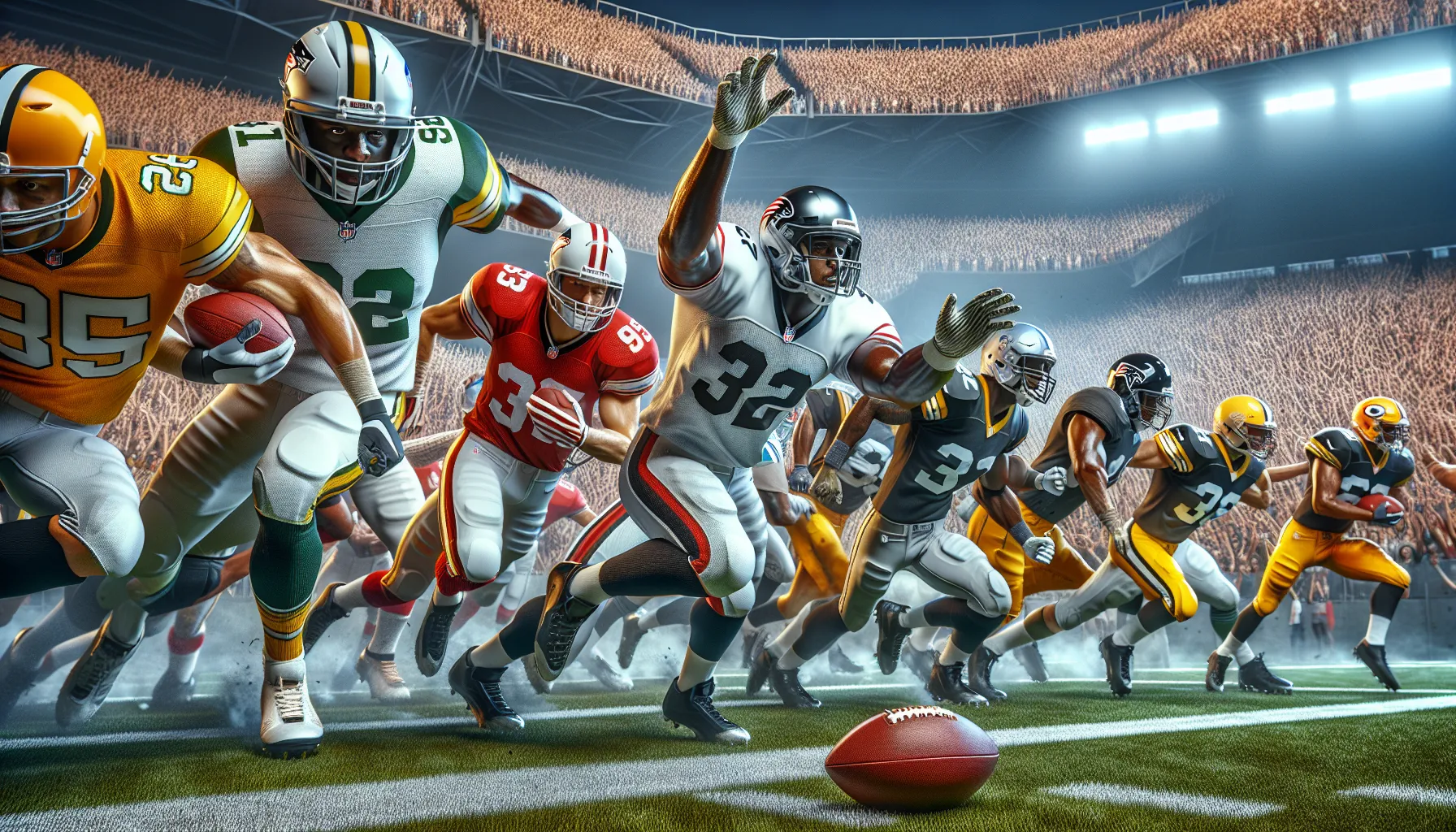
The idea of the NFL being scripted often sparks debate, but a closer look reveals significant evidence and statements that challenge this theory. Let’s examine the league’s position and statistical proof that support the authenticity of the sport.
NFL’s Stance On The Allegations
The NFL has consistently denied allegations of scripting, emphasizing the integrity of the game. In official communications, league representatives underline the risks tied to compromising legitimacy, citing the millions of viewers globally who demand fair competition. The NFL implements strict protocols, including independent officiating committees and third-party rule enforcements, fostering transparency in decision-making.
League officials have reiterated that the unpredictability of games is central to fan engagement. Instances that seem dramatic, like game-winning touchdowns or record-breaking performances, reflect the unpredictable nature of sports rather than a pre-planned narrative. Statements from players also echo this view, with athletes regularly stressing the physical and emotional toll of preparing for unscripted outcomes.
Statistical Evidence Against Scripting
Statistical trends in football gameplay further debunk scripting claims. Analysis of win probabilities, turnovers, and underdog victories shows patterns typical of random outcomes rather than orchestrated events. For example, during the 2022 season, underdogs won 56 games, showcasing the league’s unexpected twists—not a prewritten storyline.
Playoff outcomes provide additional validation. Lower-seeded teams, such as the 2011 New York Giants, have made improbable postseason runs, indicating authentic competition. Betting markets also reveal rapid shifts based on unpredictable performances, aligning poorly with any alleged scripting model.
These points demonstrate how the NFL’s outcomes emerge from a blend of skill, strategy, and chance, not a prearranged script.
The Impact Of The Scripted NFL Narrative
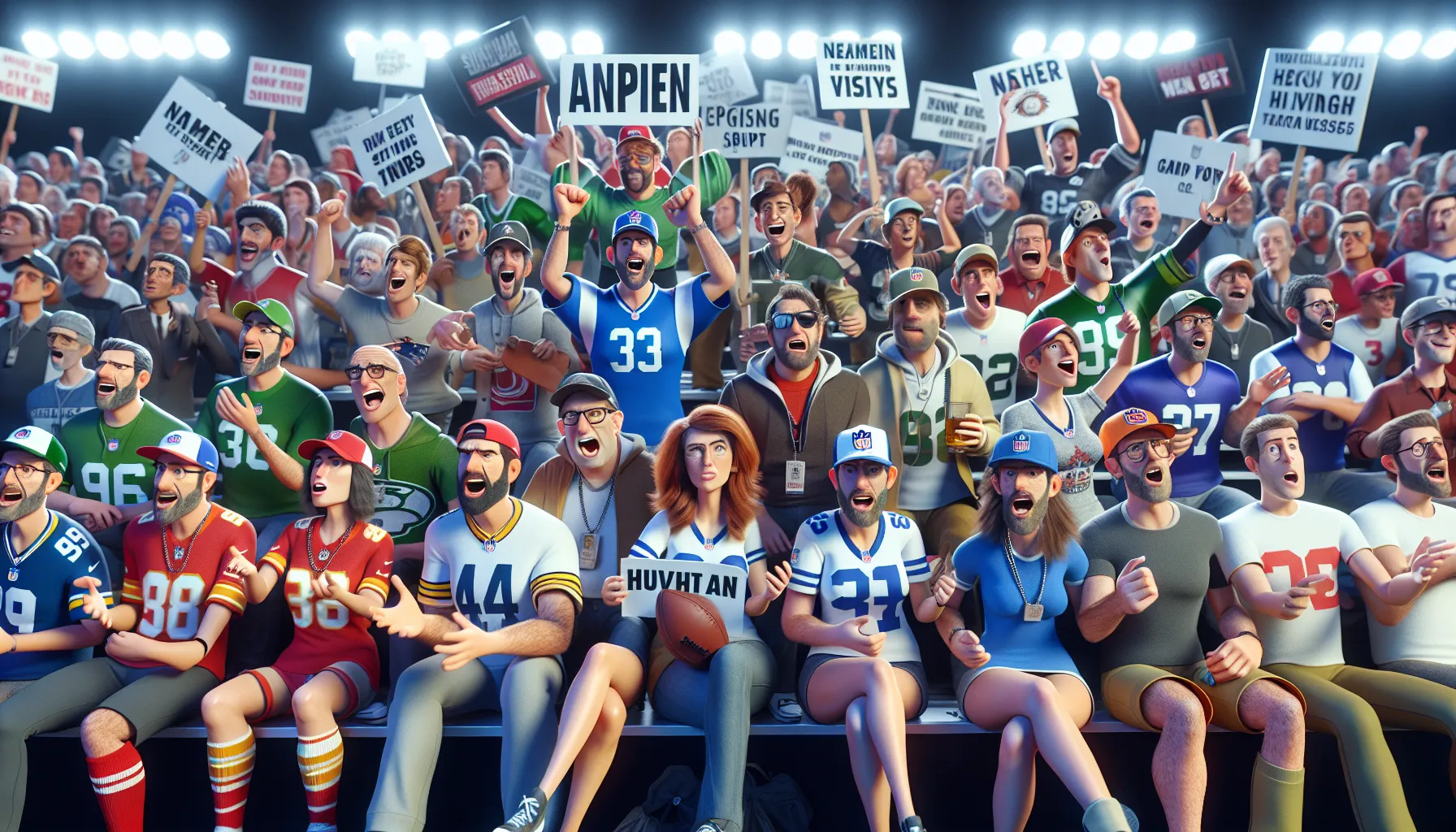
The idea of the NFL being scripted stirs curiosity, debate, and humor across its massive fan base and beyond. This narrative impacts not just fans but the league’s image on various levels.
Fans’ Reactions And Speculations
Fans discuss the “scripted NFL” theory with a mix of skepticism, humor, and genuine intrigue. On social media, memes and jokes about players “acting out scripts” fuel viral conversations, making this notion a pop-culture trend. Dramatic plays, shocking comebacks, and storybook endings often lead fans to question their authenticity—especially when games seem too perfect to be coincidental. For example, Tom Brady’s legacy-defining win during Super Bowl LI has often been cited in such debates. Others point to controversial officiating decisions or inexplicable performance shifts that appear to align with profitable storylines. While many engage in lighthearted banter, some view these moments as evidence supporting their belief in scripted outcomes.
Effect On The League’s Reputation
The scripted narrative generates both challenges and opportunities for the NFL’s reputation. The league thrives on its unpredictability and drama, but claims of pre-planned outcomes risk compromising its credibility. Questions about officiating consistency, particularly in high-stakes playoff games, exacerbate concerns among fans and critics. For instance, missed calls or controversial penalties during critical moments can prompt accusations of bias or manipulation. Despite these challenges, the scripted debate also sustains fan engagement, as it adds to the larger-than-life appeal of NFL storylines. By maintaining transparency and upholding competitive integrity, the NFL defends its standing as an authentic and trusted sports organization.
Conclusion
The idea of the NFL being scripted is fascinating and definitely keeps the conversation alive among fans. While some moments feel too perfect to be real, the league’s unpredictability and competitive nature remind me why I love the game. Whether it’s skill, strategy, or just pure luck, the magic of football lies in its ability to surprise us. At the end of the day, that’s what makes the NFL so thrilling to watch.
Frequently Asked Questions
Is the NFL scripted?
No, the NFL is not scripted. The league has repeatedly denied such claims, emphasizing its commitment to competitive integrity. While game moments often feel cinematic due to unpredictability, they result from skill, strategy, and chance rather than a pre-planned narrative.
Why do people think the NFL might be scripted?
Speculation arises from dramatic comebacks, controversial officiating, and “perfect” storylines that seem too coincidental. Social media, memes, and jokes from players like Arian Foster have further fueled these conspiracy theories.
Are controversial calls proof that the NFL is scripted?
Controversial calls are part of the game due to human error in officiating. While some fans see them as suspicious, there’s no evidence suggesting they’re intentional or part of a script.
How does the NFL handle integrity concerns?
The NFL enforces strict protocols, uses independent officiating committees, and maintains transparency to protect its reputation. These measures aim to ensure fair competition and maintain public trust.
Why do NFL games feel so dramatic?
The NFL’s unpredictability, close games, and high stakes naturally create dramatic moments. These elements enhance the excitement and emotional investment for fans.
Does the NFL benefit from scripted narratives?
The NFL benefits from engaging storylines driven by real events, not scripts. Iconic comebacks and rivalries boost viewership organically, without compromising the authenticity of the game.
Have players ever admitted to receiving “scripts”?
No player has seriously claimed the NFL is scripted. Comments like Arian Foster’s joke about “scripts” were made humorously and not as accusations.
What keeps people questioning the NFL’s authenticity?
Shocking game outcomes, viral memes, and controversial calls spark curiosity and skepticism. The NFL’s massive revenue and its ties with media further lead some fans to speculate on manufactured drama.
What evidence supports the NFL’s authenticity?
Statistical analyses of win probabilities, unexpected underdog victories, and independent oversight all point to genuine competition. These factors reflect the unpredictable and skill-based nature of the sport.
Does the “scripted NFL” claim damage the league’s reputation?
While it raises some skepticism, the claim also stirs fan engagement through humor and debates. The NFL’s commitment to fairness helps to mitigate potential damage to its credibility.

